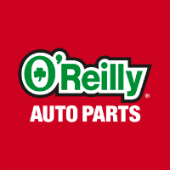-
Welcome to Auto Parts Forum
Whether you are a veteran automotive parts guru or just someone looking for some quick auto parts advice, register today and start a new topic in our forum. Registration is free and you can even sign up with social network platforms such as Facebook, X, and LinkedIn.
Brotrippers Episode 5: You Just Got Ferg'd
-
Similar Content
-
- 0 replies
- 72 views
-
- 0 replies
- 159 views
-
- 0 replies
- 219 views
-
- 0 replies
- 208 views
-
- 0 replies
- 180 views
-
-
Similar Topics
-
-
By Counterman
In our cover story for
link hidden, please login to view, we asked distribution leaders to reflect on the successes and challenges of 2022 and share some of their insights for the industry in 2023. Here’s our Q&A with Steve Tucker, president of Automotive Parts Associates (APA).
AMN/CM: What did your organization accomplish in 2022 that you are most proud of?
ST: I am so proud of our team here at APA/TruStar headquarters as well as our shareholders and members. The acquisition of TruStar at the beginning of 2022 not only significantly increased our membership but also opened the door to access additional product categories for all APA/TruStar distributors and increased our footprint to better access national account opportunities. Probably just as big for us is the increase in investments we have made in technology. Providing our distributors with easy access to data that is tailored to their market area is absolutely key in being able to structure inventories to best serve our customers. The adoption rate of these new tools has exceeded my expectation, and I know this will continue to be a big part of the services we provide. Finally, we have grown APA by recruiting distributors who may have not currently been part of a group and see the value of joining APA, and also by recognizing the opportunities bringing those members into APA provides to not only recruit but to our existing shareholders. Bringing non-direct purchases back into the group makes us all stronger not only for the group itself, but it also makes us more valuable to our supplier partners as well. Life is good here at APA!
AMN/CM: How can the independent aftermarket parts and service segments best prepare to repair the car of tomorrow as ADAS, EVs and other technologies become more prominent?
ST: This has become a “go-to” topic just about any time we gather. Aside from getting better access to the information we need to effectively make repairs, I just don’t see a major problem. The amount of parts and repairs actually involving the current internal combustion powerplant in today’s vehicle is minimal compared to repairs being performed on the remainder of the vehicle systems. The chassis and braking systems on EVs and ICE vehicles are very similar, and parts availability for EVs is rapidly improving, so I am quite optimistic we will be able to adequately service these vehicles just as we do with today’s ICE-powered platforms. The other technologies such as ADAS, LiDAR, etc., are being repaired to some degree today and as vehicles with those technologies become an even bigger piece of the car parc, I believe our customers will embrace the repair opportunities just as they have with other new technologies. One can argue that repair frequency for EVs and emerging technologies will be less than what we currently see. However, I think the types of repairs will be more “high-tech,” and as such the repair dollars associated with the change should improve in both parts and labor segments. As an industry, we need to remain agile. We must be prepared to support EVs and vehicles that are dependent on ADAS, while at the same time providing parts and service to older vehicles. Our professional customers should be able to rely on us to keep them abreast of trends, tools and the training necessary as they continue to service a wide range of vehicles. We’ll be making this a top priority, especially as the electrification and ADAS categories continue to become major growth contributors. I would also mention this increases the importance of Right to Repair for our industry. As systems become more complex, we need to ensure that professional shops have access to critical data that helps repair vehicles. We will continue to advocate for Right to Repair with industry partners.
AMN/CM: What do you feel is the greatest threat facing the automotive aftermarket right now?
ST: I strongly believe that threats are just opportunities you haven’t yet mastered. Getting access to information from the OEMs that will allow our technician customers to keep doing what they do is one of the biggest threat/opportunities we face today in my opinion. Another major issue is not peculiar to our industry and that is one of finding and retaining employees. From the repair facility through the distribution chain and to our supplier partners we are all facing the same challenges on this issue. For a lot of us this industry has been more of a lifestyle than just a career, and we need to pass this passion on to those standard bearers of the future.
The post
link hidden, please login to view appeared first on link hidden, please login to view.
link hidden, please login to view




Recommended Posts
Join the conversation
You can post now and register later. If you have an account, sign in now to post with your account.
Note: Your post will require moderator approval before it will be visible.